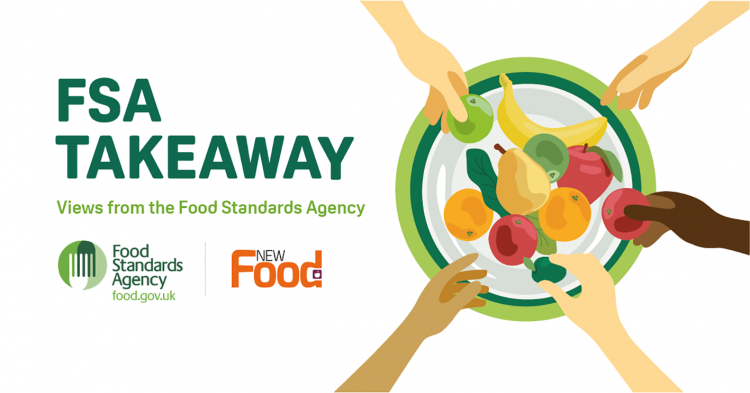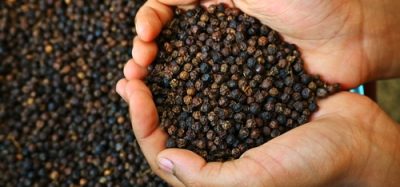UK attitudes towards healthy and sustainable diets
- Like
- Digg
- Del
- Tumblr
- VKontakte
- Buffer
- Love This
- Odnoklassniki
- Meneame
- Blogger
- Amazon
- Yahoo Mail
- Gmail
- AOL
- Newsvine
- HackerNews
- Evernote
- MySpace
- Mail.ru
- Viadeo
- Line
- Comments
- Yummly
- SMS
- Viber
- Telegram
- Subscribe
- Skype
- Facebook Messenger
- Kakao
- LiveJournal
- Yammer
- Edgar
- Fintel
- Mix
- Instapaper
- Copy Link
Posted: 9 November 2021 | Michelle Patel | No comments yet
Michelle Patel outlines the results of the Food Standards Agency’s survey around Britain’s stance on health, environmentally friendly food and who should be taking the reins.


When people are confronted with the challenges, they start to interrogate their own consumption patterns and whether these are sustainable in the global context. They begin at home, considering the changes they can make; buying less and wasting less, eating less meat, or re-thinking their purchasing habits (eg, buying out of season). Others prefer not to change and would rather steps be taken to allow them to maintain their current lifestyles.
Consumers want change but there are obstacles
In our recent nationally representative survey (August 2021), over half of consumers (54 percent) said they wanted to change their diet to make it more environmentally friendly. Only a minority (13 percent) told us that they would not want to change their diet for that reason.
However, consumers feel that there are barriers that hinder their shift to a more sustainable diet, including the cost of sustainable foods (29 percent), not understanding what is sustainable and what is less sustainable (16 percent), limited choices for sustainable options (13 percent), and difficulty in forming new sustainable habits (13 percent). Many interventions have been trialled to encourage more sustainable diet choices, but none are a silver bullet and many, including labelling, do not necessarily lead to behaviour change in isolation.
Meat and dairy reduction are polarising issues
Nine in 10 eat meat regularly; while many people recognise the benefits of reducing their meat and dairy consumption, their interests, values, beliefs and what they can afford vary widely and all these factors influence their stance on this matter. It is also a not unreasonable position when there is no general agreed amount that should be consumed either for health or for sustainability.
Consumers sometimes feel that they are unable to effect significant change in the context of the global, structural challenges facing the food system. When surveyed as part of our study earlier this year on food during the pandemic, 69 percent thought the Government should be doing a ‘great deal’ or a ‘fair amount’ to encourage people to eat more sustainable diets. However, they think that food producers/manufacturers are also responsible, followed by retailers and the public themselves. Whilst they are thinking about diet, they are also concerned about issues like unnecessary packaging on food items, and the carbon trade-offs involved in producing our food.
Although people look first to changes they believe they can make in their own lives, they tell us that they want to see evidence of industry’s commitment to reducing waste at all stages of the food chain: from production techniques to retail and marketing practices.
The future of food
Many of the emerging technologies and innovations in the food industry have great promise to enhance sustainability while improving nutrition and public health.
More than half of the respondents to our recent survey (58 percent) thought that the Government should invest in developing new healthy and sustainable food products if the private sector does not. This responsibility includes investing in independent research and technology to support sustainable intensification and innovative farming methods. However, consumer acceptance of new food is influenced by perceptions of ‘unnaturalness’, and the lack of certainty about potential impacts on health, animal welfare, farming and the environment.
People have also told us that they want the Government to be visible in terms of looking out for the health, safety, food quality, security and environmental impact of the food supply. People do not always trust the motives of the people promoting these technologies, and they deploy a number of rules of thumb to evaluate how risky something feels for them. For example, whether they feel that it might have a severe impact, if it’s something they can control, whether it feels ‘natural’, ‘unnatural’ or familiar, and if it feels proportionate set against other benefits, particularly the benefits to them.
Acceptance of insects as a human food is also rising, but this commodity will need to be processed into ingredients for more appetising products in order to be widely accepted.
Survey data in the UK has also highlighted the current stance Brits have on cultured meat, with just one in five currently stating they’d eat meat grown in a lab, and many who would not or remain unsure.
The younger generation fears technology far less, with lab-grown meat or gene editing (which felt like science fiction 20 years ago) seen as the solution to intractable problems – but they also want to see government setting standards.
These solutions offer the potential to improve food security, food safety and food nutrition, while also delivering environmental sustainability benefits, waste reduction, and possibly, reduced carbon emissions. However, alongside these huge benefits, new technologies may present new food safety issues around nutrition, allergenicity, toxicity potential and traceability, all of which, of course, will need to be addressed in their regulation.
About the author
Michelle Patel is the Deputy Director of Analysis and Insight within the science team at the Food Standards Agency (FSA). She has nearly 20 years in Government and a background in communications and remains an endlessly curious scholar of public perception. With a deep interest in how citizens can influence policymaking she is fortunate to lead a fine team of researchers and to have access to leading experts and a full range of social science tools to understand how and why people do what they do when it comes to food.
Related topics
Clean Label, Cultured Meat, Environment, Food Security, Health & Nutrition, Plant based, Sustainability, Technology & Innovation, The consumer








